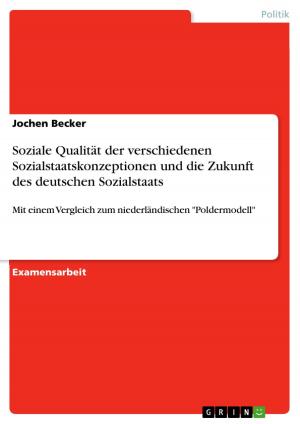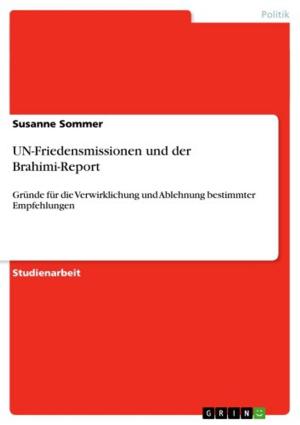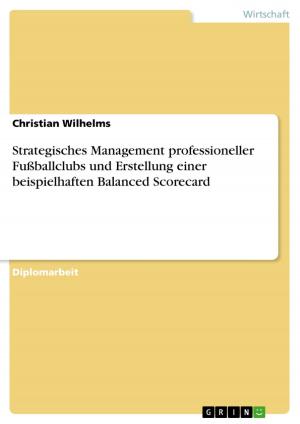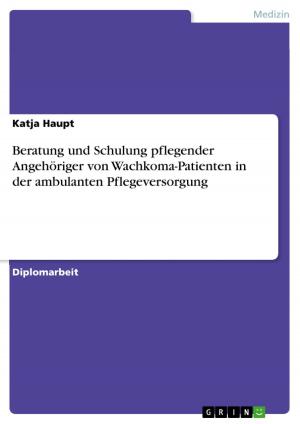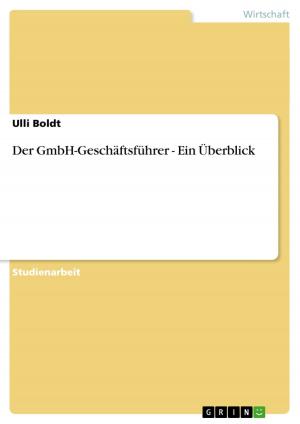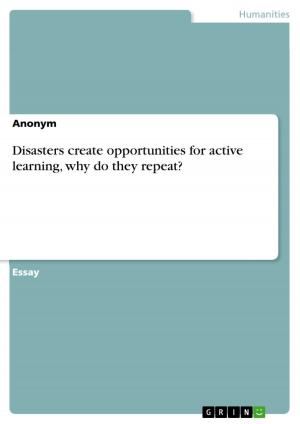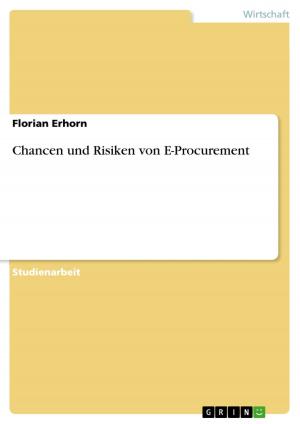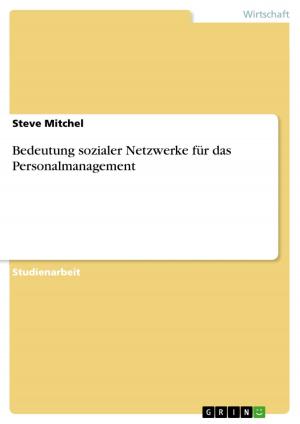Outsourcing - A Path without Return?
A Path without Return?
Business & Finance, Management & Leadership, Management| Author: | Sylvia Ritt, Friedrich Spatzenegger | ISBN: | 9783638491402 |
| Publisher: | GRIN Verlag | Publication: | April 15, 2006 |
| Imprint: | GRIN Verlag | Language: | English |
| Author: | Sylvia Ritt, Friedrich Spatzenegger |
| ISBN: | 9783638491402 |
| Publisher: | GRIN Verlag |
| Publication: | April 15, 2006 |
| Imprint: | GRIN Verlag |
| Language: | English |
Diploma Thesis from the year 2006 in the subject Business economics - Business Management, Corporate Governance, grade: 1, University of Innsbruck (Institut für Leadership, strategische Unternehmensführung), 61 entries in the bibliography, language: English, abstract: Outsourcing is a complex process. It is a top management issue and a strategic task to maintain competitiveness and sustainable competitive advantage in a corporation. As a main outcome of this thesis the authors developed and created a strategic framework, guided by the aim to increase the quality and efficiency in outsourcing decision processes. It should provide a supportive tool for successful outsourcing decisions in a fast changing environment. Furthermore the authors answer the question whether outsourcing is a path without return or not. The basis for the outcome and the method the authors chose to achieve their findings and concluding framework are: At first: an analysis of the relevant academic publications and a comparison of the main findings with popular scientific literature. Covered topics are outsourcing as a strategic tool for competitiveness, core competence concentration, offshoring versus outsourcing, service outsourcing and ethics in outsourcing. This was followed by an analysis of long term impacts to national economies caused by outsourcing and offshoring activities. Further qualitative interviews with two Austrian Enterprises and expertise knowledge from the worlds top consulting firms, flow into the development of the strategic framework. The new framework created by the authors of the thesis is inspired by the 'stagegate-model' of Robert G. Cooper and an advancement of it. This model is originally used in innovation management for the evaluation of new developments and innovations.
Diploma Thesis from the year 2006 in the subject Business economics - Business Management, Corporate Governance, grade: 1, University of Innsbruck (Institut für Leadership, strategische Unternehmensführung), 61 entries in the bibliography, language: English, abstract: Outsourcing is a complex process. It is a top management issue and a strategic task to maintain competitiveness and sustainable competitive advantage in a corporation. As a main outcome of this thesis the authors developed and created a strategic framework, guided by the aim to increase the quality and efficiency in outsourcing decision processes. It should provide a supportive tool for successful outsourcing decisions in a fast changing environment. Furthermore the authors answer the question whether outsourcing is a path without return or not. The basis for the outcome and the method the authors chose to achieve their findings and concluding framework are: At first: an analysis of the relevant academic publications and a comparison of the main findings with popular scientific literature. Covered topics are outsourcing as a strategic tool for competitiveness, core competence concentration, offshoring versus outsourcing, service outsourcing and ethics in outsourcing. This was followed by an analysis of long term impacts to national economies caused by outsourcing and offshoring activities. Further qualitative interviews with two Austrian Enterprises and expertise knowledge from the worlds top consulting firms, flow into the development of the strategic framework. The new framework created by the authors of the thesis is inspired by the 'stagegate-model' of Robert G. Cooper and an advancement of it. This model is originally used in innovation management for the evaluation of new developments and innovations.

